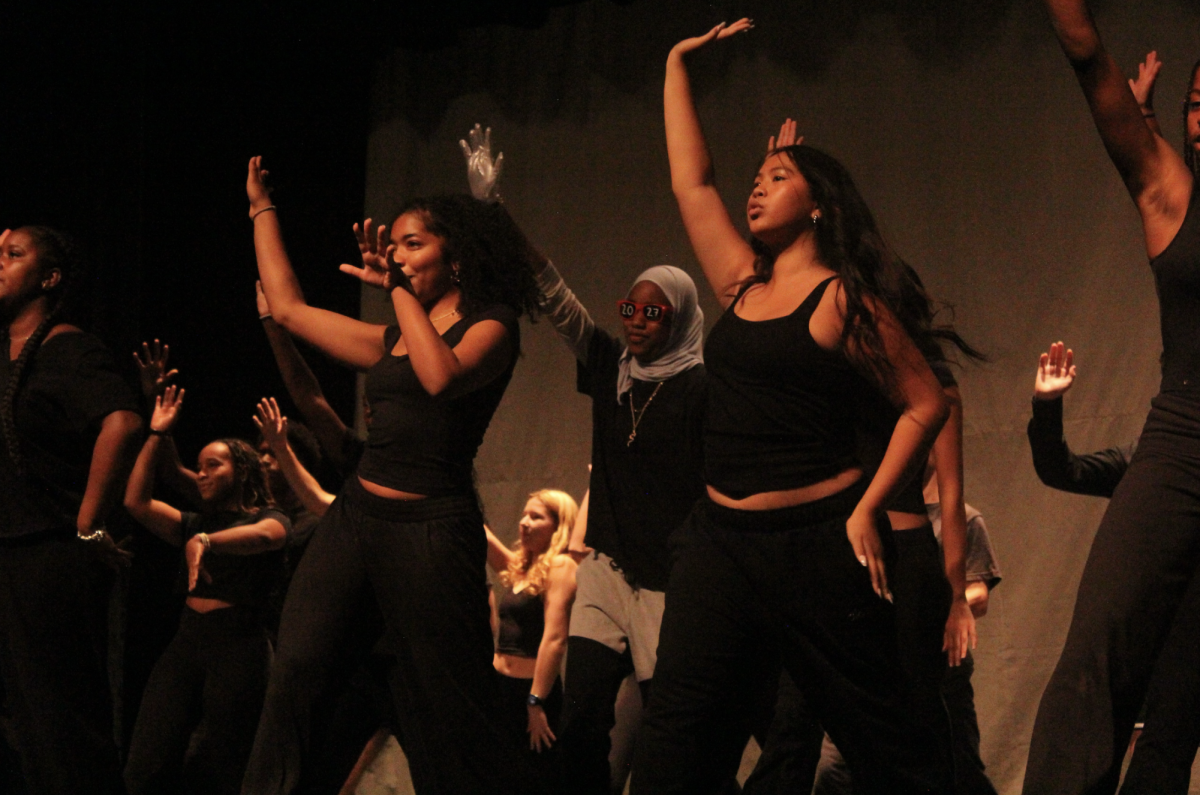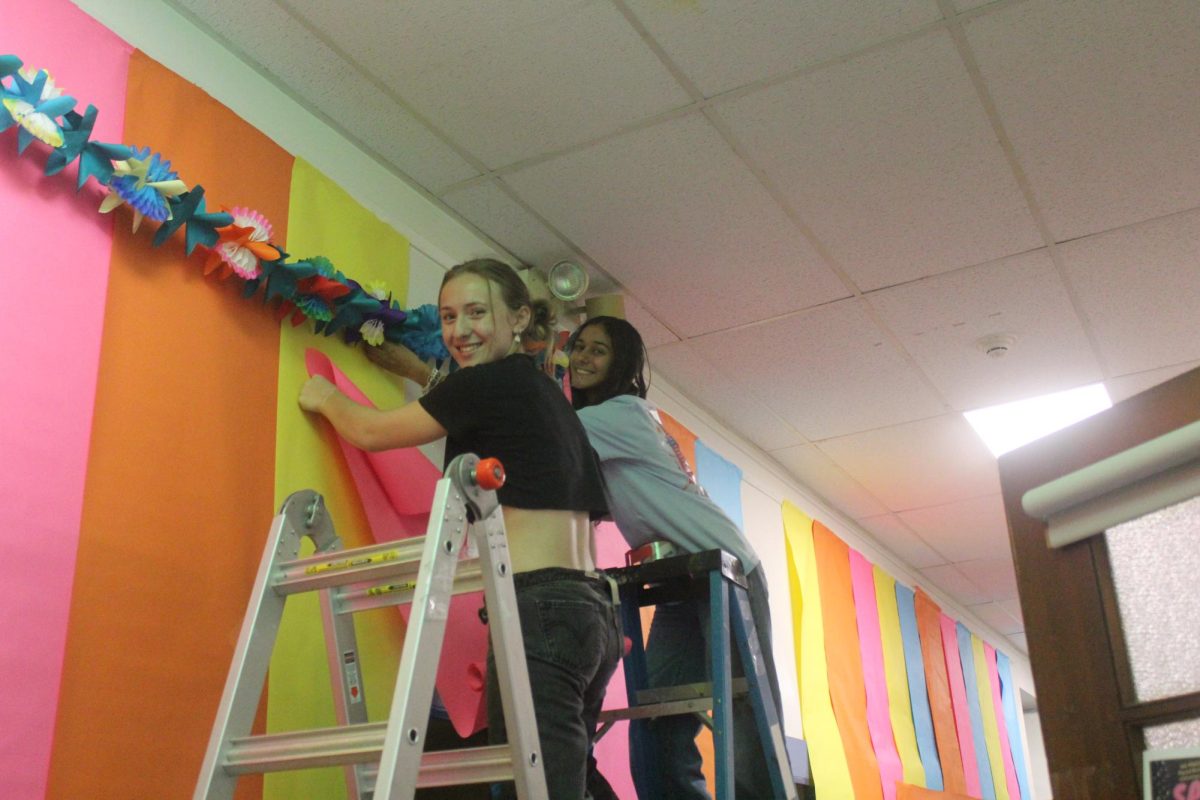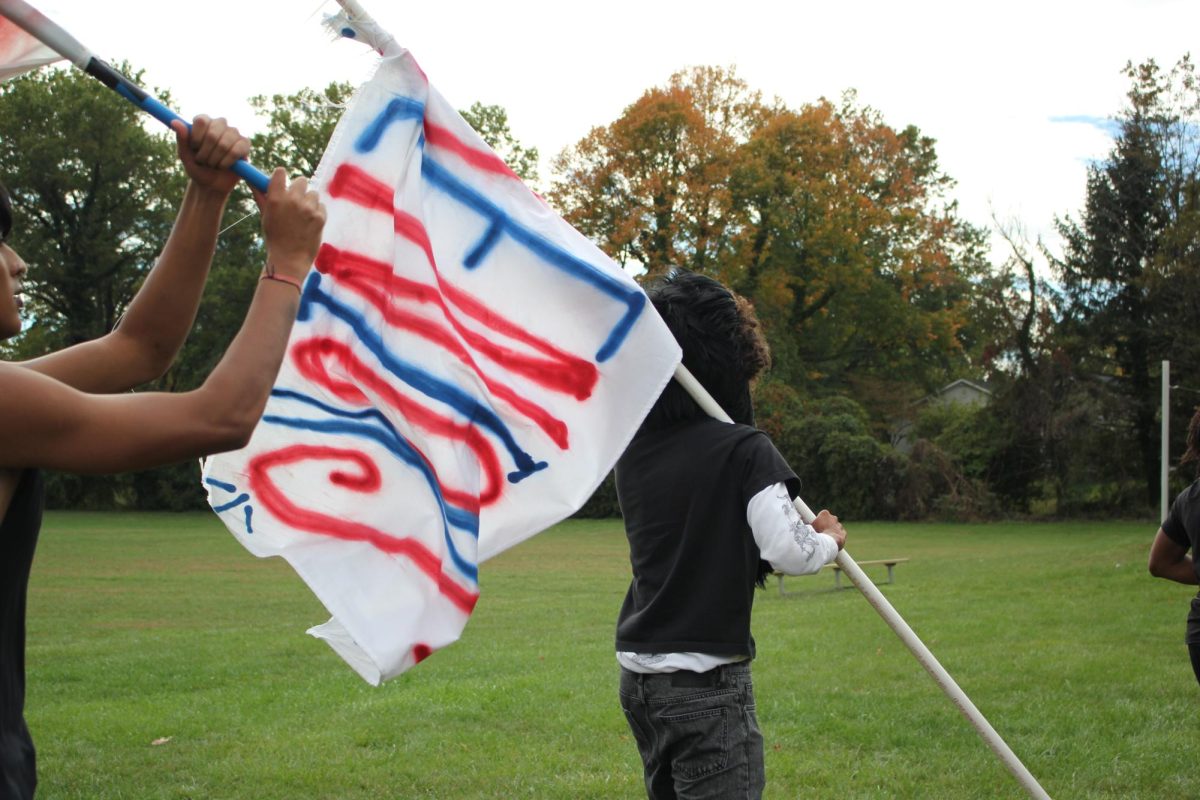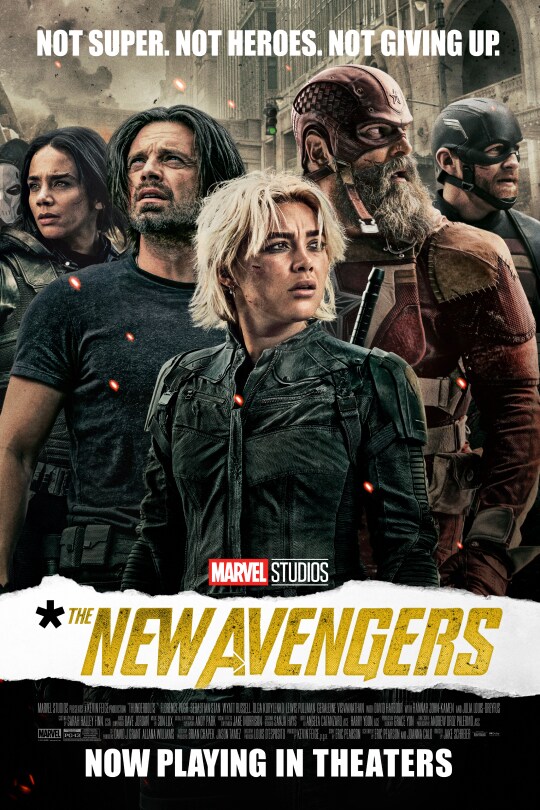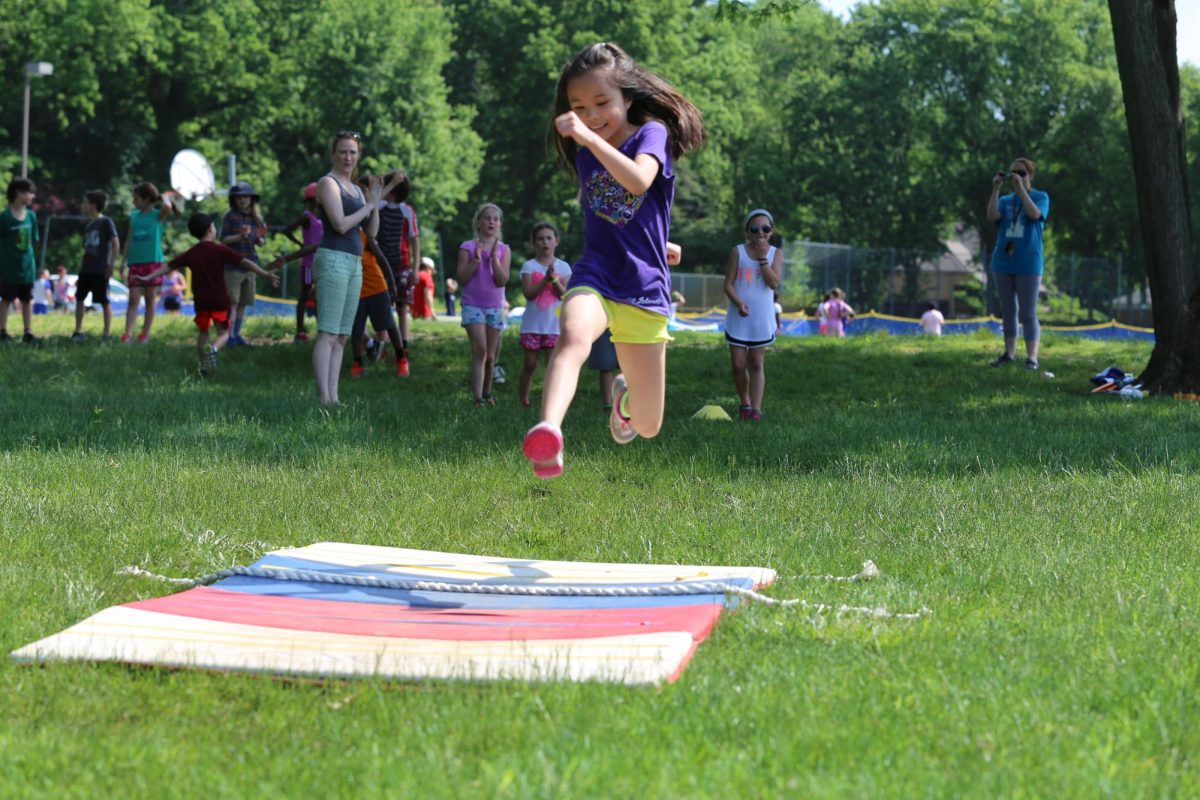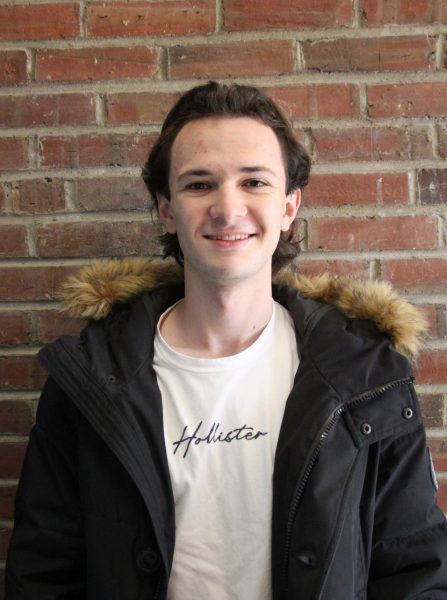
I’ve always felt sort of strange observing the discourse around “talking across difference” at Moorestown Friends School. Overall, I agree that our community tends to magnify certain perspectives while diminishing others, and I agree that attempting to remedy this issue is valuable. The disconnect for me, I suppose, comes packaged within the framing of the issue as a “broad” one within our community.
If our standard for determining whether we can effectively “talk across difference” is if we can hold a divisional assembly where five to seven community members sit on a stage with microphones and voice their opinions on the eminently divisive issues of our time with absolutely no outsized social repercussion, then, yes, MFS probably falls short by this metric. I don’t think anyone is actually holding us to this standard, except maybe the students who wanted to see a full-fledged debate between prominent faculty a few months ago. More importantly, I don’t think this is the standard we should be striving to meet. At a basic level, such a model is fundamentally contrary to how these discussions actually take place. There is often nothing grand or “debate-y” or even particularly communal — in the sense that we mean the entire community — about divisive conversations; they occur most frequently, at least in my experience, in smaller, more intimate spaces, as any other personal conversation would.
In a similar vein, the formatting of the first Inclusive Community Conversation (ICC), comprised entirely of faculty, is somewhat contradictory to the goal its name seems to imply in terms of explicitly expanding discourse. There isn’t really anything particularly inclusive about placing a few voices under the (literal) spotlight with guaranteed airtime and having the rest of the community grapple with those perspectives exclusively. Organic discourse across differences can’t select panelists, it cannot vet beliefs or prepare tailored questions prior to the intellectual encounter — and it shouldn’t.
Yet, I cannot ignore the fact that we probably perform this same ideological selection within our own spaces too, albeit in more subtle ways. We absolutely select those who share our experiences or beliefs across a variety of factors when deciding which groups we’d like to join. This is, most basically, a function of comfort. It feels good to have your beliefs affirmed, particularly as they relate to more personal matters like lifestyle choices; surrounding yourselves with like-minded individuals effectively guarantees this outcome, but it also limits the scope of contrary perspectives we are exposed to. There is perhaps very little difference between an ICC in which everyone sits in facile agreement while avoiding anything remotely divisive, and an ideologically homogeneous student group where agreement broadly exists as a baseline of participation, and implicit social pressure automatically stifles the voicing of dissent on potential points of contention. The panel, with its increased visibility and more explicitly attached expectation of “doing the thing,” more clearly exposes how absurd the idea of attempting to produce meaningful discourse from conversations around “divisive topics” is with people who either already share our beliefs or are unwilling to dissent.
Yet I suppose I should be honest: it has simply not been my experience that we cannot “talk across difference” at Moorestown Friends School. On the contrary, I’ve personally found that we actually do a fairly good job with it. I think I’ve discussed virtually every “Don’t Talk About it so as to Not Offend” topic with friends and teachers of wildly divergent perspectives. I’ve done so without feeling judged in any capacity around the views I express in these conversations — I’d like to imagine I do a good job reciprocating that same decency for those I’m speaking with.
In thinking about what’s made my experience distinct from what the school seems to be attempting to counter with the “across difference” initiative, the main distinction seems to be what my peers and I select in terms of our associations. I think politics are fascinating, and I find talking about them enjoyable — as opposed to seeking a particular ideological disposition, I find myself selecting people who share this same interest in talking about ideology. My “group,” then, is built not on a particular set of beliefs within politics, but a broader belief in politics being interesting and worth discussing, and our often divergent stances within the political realm, while certainly being assets to discussion, are second to our sharing this common first-principle upon which discussion and productive disagreement can be founded. There must first exist some similar baseline commitment to discussion among parties attempting to converse in good faith. We may disagree on what the best football team is, but our shared enjoyment of the sport permits discussion to occur even though disagreements exist within that realm of common interest.
This seems like a good dynamic to attempt to cultivate, but it is far easier said than done. I don’t think the experience of those who can talk across difference at MFS is solely a result of some heightened ability to grapple with and conduct good discourse around politics. I can only speak for myself, but I think a large part of what’s allowed me to experience political discourse at MFS so freely is that I have the privilege of viewing most issues through a “third person,” disconnected perspective. There aren’t any particularly divisive issues in which I have a direct personal stake. My parents never worked very hard to have me inherit their beliefs, so I don’t necessarily feel deeply wed to my views, and my life is seldom directly impacted by the material consequences of a particular side being “correct” on a topic — this is simply not the case for many people. I am fortunate enough to be able to treat “divisive topics” as an area of interest to explore, for others, the political ramifications of one side or the other emerging “victorious” in discourse could quite literally spell a fundamental change in the rights they are afforded in society — it makes sense, then, that preferences for ideological homogeneity begin to emerge.
In terms of bridging the divide between genuinely passionate actors, I feel the Inclusive Community Panel format may possess some of the components that, if implemented in a more suitable context, could be used to increase the chances of finding common ground. The appeal, at least for me, of these panels has always been the “human experience” element of the assemblies. These are people we see and perhaps interact with every day, but they are not necessarily people we “know” beyond the immediate classroom context. By engaging with questions centered around cultivating vulnerability, panelists were given the chance to speak openly about significant (oftentimes previously unknown) components of their person. I typically left feeling as though I had gained genuine insight into the thoughts and experiences of the panelists — the community could then attach a more complete picture of that individual to their interactions with them; it also made us more cognizant of the myriad perspectives held by those around us.
I believe a similar principle can be employed to begin bridging ideological divides within our conversations. In viewing people foremostly as a set of experiences and dispositions informing their views, as opposed to categorizing them solely through the beliefs they voice, we humanize our partners in discourse and engage with the person behind the perspective (Humans have feelings, memories, and desires; ideas do not). This allows us to better elucidate the “why?” behind our beliefs and view our perspectives as the product of various influences throughout our lives — it both becomes easier to understand and harder to alienate the “other” if we can trace out how they have reached their conclusions whilst also interrogating this same journey within ourselves. The panel, therefore, becomes inclusive in a sense not in its immediate form, but rather in the vulnerability and introspection it may spur in others, using the example set by a few to make the whole community feel more comfortable sharing their perspectives. Understanding that the people who disagree with you are actually also real people is a fairly low bar from which to begin our work in talking across difference, but a shift from entertaining abstract ideological prescriptions to figuring out what people believe and why they believe it seems like a good way to encourage deeper critical thought about our own perspectives and those of others while also priming us to approach these conversations with the respect and good-faith expected of other people.
Talking about divisive issues is easy between individuals who agree because there is no difference to speak across; it is furthermore easy for individuals with a degree of separation between themselves and the issues they may be speaking about to talk about controversial topics, the disagreement is in some sense superficial. Outgroup rejection, and the resulting inability to speak across groups, occur in attempting to cultivate conversation between individuals who disagree and feel equal fervor around their position. I don’t think the answer is “Have people calm down about politics;” this doesn’t feel realistic, and it doesn’t seem appropriate because politics is really important. There’s probably more value in working towards the realization of some sort of mutual common ground upon which to build our discourse. Our discussion spaces will become less insular and the ideological gap between differences will be bridged through shared first principles. This is obviously so much more easily said than done, but I believe a “people over perspectives” model of understanding belief and how we engage with it is a good starting point to foster more genuine, respectful conversation. As has been acknowledged by the administration, I do not think the March 8 ICC format is the way to achieve this end, and I broadly agree that the stimulation (not simulation — it has to genuinely occur) of good “model discourse” within smaller spaces will give us a better foundation upon which to begin building our ability to engage in productive dialogue across genuinely passionate difference.


